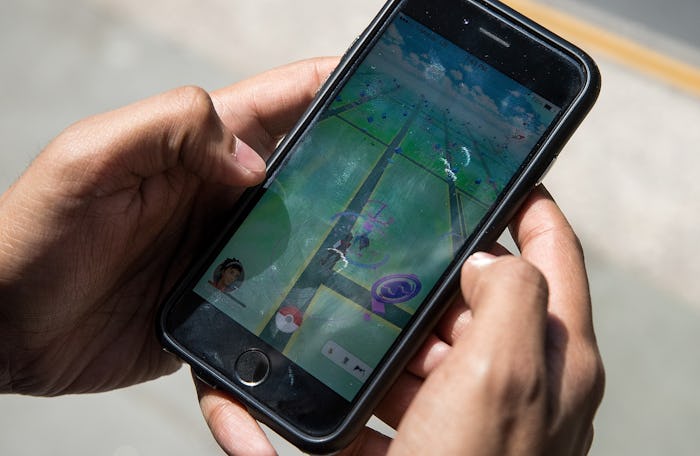Entertainment

Holocaust Museum Asks Pokemon Go Players To Chill
Pokemon Go, the latest gaming fad sweeping the nation, has people everywhere "catching" animated animals around them. The Japanese cartoons popular in the '90s, have popped out of playing cards and TV shows, into real life. Pokemon "appear" everywhere, from hospital rooms to school hallways (seen through your phone screen). But the characters are not always welcome, and some establishments are finally taking a stand. More specifically this week, the Holocaust Museum asked Pokemon Go players to chill.
Pokemon Go is an app that uses your phone's GPS location and clock to make Pokemon characters appear around you. To play the game, users have to walk around in the real world, looking for Pokemon characters to catch.
The game has exploded in popularity, almost overtaking Twitter in active users. The app is a dream come true for Pokemon fans, who have long dreamed of a world when Pokemon appear in real life. Part of the appeal of the augmented reality of the game, is that it blurs the lines between what's real and imaginary. But the app is having an impact on life in the real world.
"Pokespots," or landmarks where users can catch free items, are popping up in unexpected, and sometimes unwelcome places. Users have caught Pokemon at their office desks and in hospital labor rooms. As players roam their neighborhoods trying to find the characters, they sometimes stumble upon unexpected surprises.
"Surprises" might not be an ideal term, of course. One Wyoming girl reportedly found a dead body in the water while searching for Pokemon near the Wind River recently. Another user claimed he was lured into an armed robbery as he looked for the characters.
But the Holocaust Museum in Washington, D.C. is not game. This week, it was reported that there are three Pokestops scattered inside the museum.
"Playing the game is not appropriate in the museum, which is a memorial to the victims of Nazism," Andrew Hollinger, the museum's communications director, told The Washington Post. "We are trying to find out if we can get the museum excluded from the game." According to the Post article, the game lured several visitors to the Museum who had no interest in learning about the victims of the Holocaust.
The game highlights the uncomfortable situations that can happen when the lines between reality and fiction are blurred. Unlike other forms of entertainment, Pokemon follows users wherever they go. In using a phone's GPS, the game enters the real world of the player, with no regard to whether its a welcome distraction.
Programs and gamers alike will have to discern the appropriate time and place for "catching them all."